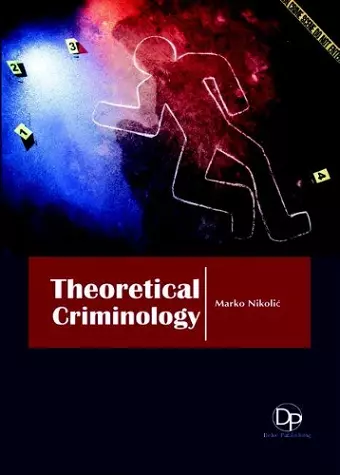Theoretical Criminology
Format:Hardback
Publisher:Delve Publishing
Published:30th Nov '16
Should be back in stock very soon

There are many theories on Criminology, some would say that every expert has his own view. At the end, the most important are results in practice, but that does not lower the significance of good theoretical base. In the mid-18th century criminology arose as so¬cial philosophers gave thought to crime and concepts of law. Over time, several schools of thought have developed. There were three main schools of thought in early crimi¬nological theory spanning the period from the mid-18th century to the mid-twentieth century: Classical, Positive, and Chicago. These schools of thought were superseded by several contemporary paradigms of criminology, such as the sub-culture, control, strain, labeling, critical criminology, cultural criminology, postmodern criminology, feminist criminology. Each of them requires serious further elaboration, so this book will only scratch the surface and present selected articles related to different theoretical approaches. We will start with a paper of Gino Sperenza from 1910 supporting Spencer theory of Social Darwinism, just to take a note of how people used to think just a century ago while Chapter 2 offers a theoretical treatise that bridges the social and the psychological in risk perception research. Chapter 3 considers some of the challenges associated with traditional approaches to social science research, and discuss a complementary approach that is gaining popularity agent-based computational modeling that may offer new opportunities to strengthen theories of crime and develop insights into phenomena of interest. In Chapter 4 we will mention green criminology once again as it represents global future of Criminology. This Chapter focus on green criminology’s relationship with theory with the aim of describing some of its animating features and offering some suggestions for green criminology’s further emergence. Chapter 5 brings Progressive Directions in Research and Theory regarding women abuse and adult pornography. Of its racist and violent nature. Pat Carlen (2010) claims, that contemporary `justice’ policies are exhibiting all the signs of `penal populism’ and `risk crazed gov¬ernance. If this is true, then Rob Watts is claiming in Chapter 6 that social democratic criminologists face the dual challenge of explaining why these policies are not only not working but also how this fact continues to be explained away. Studies have tried to explain the major crime declines experienced in most advanced countries. Key hypotheses...
ISBN: 9781680957914
Dimensions: unknown
Weight: unknown
325 pages